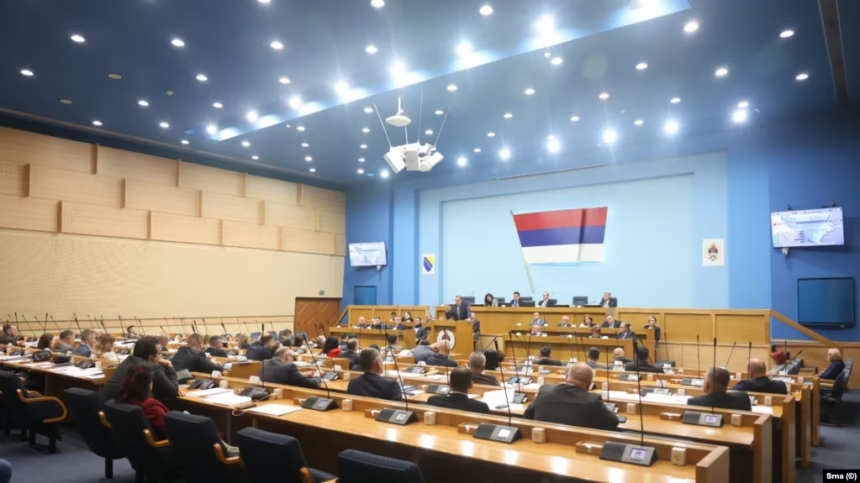An extraordinary session of the National Assembly of Republika Srpska (RS), the Bosnian Serb entity in Bosnia and Herzegovina, opened in Banja Luka on May 21. Among other issues, the Assembly is discussing a draft law to ban the financing of political parties from the RS budget and local municipalities.
This proposal follows a decision by the High Representative Christian Schmidt on April 24 to halt budget payments to two political parties: the Alliance of Independent Social Democrats (SNSD) led by Milorad Dodik, and the United Serbian Party led by Nenad Stevandić.
Schmidt justified the move as a response to what he called “blatant attacks by the RS ruling coalition against the fundamental principles of the Dayton Agreement and Bosnia’s constitutional and legal order.”
Ahead of the debate, RS President Milorad Dodik, internationally sanctioned for violations of the Dayton Agreement and accused of attacks on Bosnia’s constitutional order, called for dialogue between Republika Srpska and the Federation to return Bosnia to the “original framework of Dayton.”
He proposed a “Dayton 2.0,” which he explained as:
- Not secession
- Not escalation
- Not surrendering peace
but a return to the agreement that established a new constitutional and political order in Bosnia and brought peace.
Dodik claimed that the Dayton Agreement is essential for RS’s survival but alleged it has been forcibly altered in recent years.
He also rejected the legitimacy of Christian Schmidt as High Representative, stating his appointment was not confirmed by the UN Security Council.
The crisis, Dodik argued, can only be resolved by annulling all Schmidt’s decisions.
Dodik, Stevandić, and RS Prime Minister Radovan Višković face accusations of violating Bosnia’s constitutional order for changes imposed by Schmidt to the Penal Code. They are wanted by judicial authorities for failing to appear for questioning.
In February, Dodik was sentenced to one year in prison and six years banned from political office for ignoring the High Representative’s decisions and signing laws annulled by Schmidt.
Transparency International Bosnia warns the new RS draft law risks creating a “parallel system” and opportunities for corruption, allowing private companies to donate up to €50,000 to parties, contradicting state laws.
Unlike state law, the RS draft does not prohibit donations from companies that do business with the state, potentially channeling public funds to parties via privileged enterprises and harming parties without access to state resources.
The draft law also shifts party financing oversight to the RS Electoral Commission, although by law, it belongs to Bosnia’s Central Election Commission.
Schmidt ordered banks to freeze funds for SNSD and the United Serbian Party, transferring money to the Central Bank and informing his office.
Other agenda items include appointing an acting general auditor and deputy, as the previous auditor’s mandate expired in April. The law does not recognize acting appointments.







